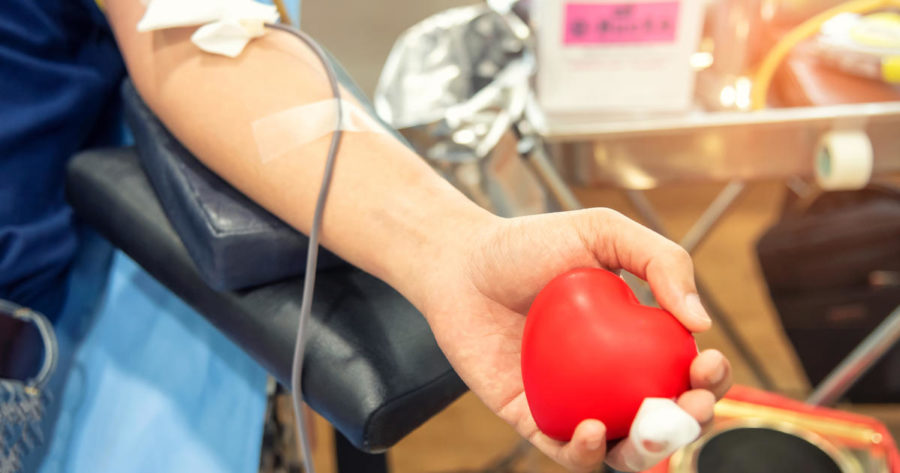Where do our blood donations go?
Blood donor at donation.
On February 1st, approximately 35 students from Cesar Chavez High School donated blood to the American Red Cross. Most students know that the blood they donate goes to someone in need, but in reality, the blood collected goes to more than just that.
This year’s blood drive was run by Alissa Harden, a Foundations of Health and Medical Terminology teacher. With the help of her students as volunteers and workers from the Red Cross, they were able to collect a total of 35 units.
In a poll conducted during the blood drive, 70% of students knew a basic idea of where the donations go to. “I’m not sure exactly where my blood goes. You’re only given a serial number after donating so it’s really hard to keep track of where your blood is. They don’t really tell you where it goes either.” One student explains.
However, many other students had assumed the blood was given to people in need after serious injuries. They were correct, their donations go to local hospitals that are continuously using them for blood transfusions.
Blood transfusions are used in situations like childbirth complications, serious injuries, and even cancer treatments. Because of this, one donation can save up to 3 lives!
So what exactly is the process of blood donation? Well, it starts with a donation that only takes about 5-7 minutes to collect. Afterward, it is transported to a lab where it will be tested and separated by red blood cells, platelets, and plasma. Here is where they find out about your blood type and the type of diseases you may have. The most ideal blood types are A+, A-, B+, O+, AB+, and AB-. If you have any of those blood types it is highly encouraged for you to donate! If any infectious diseases are detected, however, they will be discarded and you will be notified immediately. Afterward, they are transported to hospitals and kept in different storage units. Red blood cells can be kept in a refrigerator for up to 42 days! Platelets can be kept in a room-temperature agitator for up to 5 days. Plasma can be kept frozen in a freezer for at least a year.
The hospitals can go through blood donations very quickly, this is why many centers will urge as many people as they can to donate. Think about this the next time you donate blood, your donation will be helping someone in your very own community!











